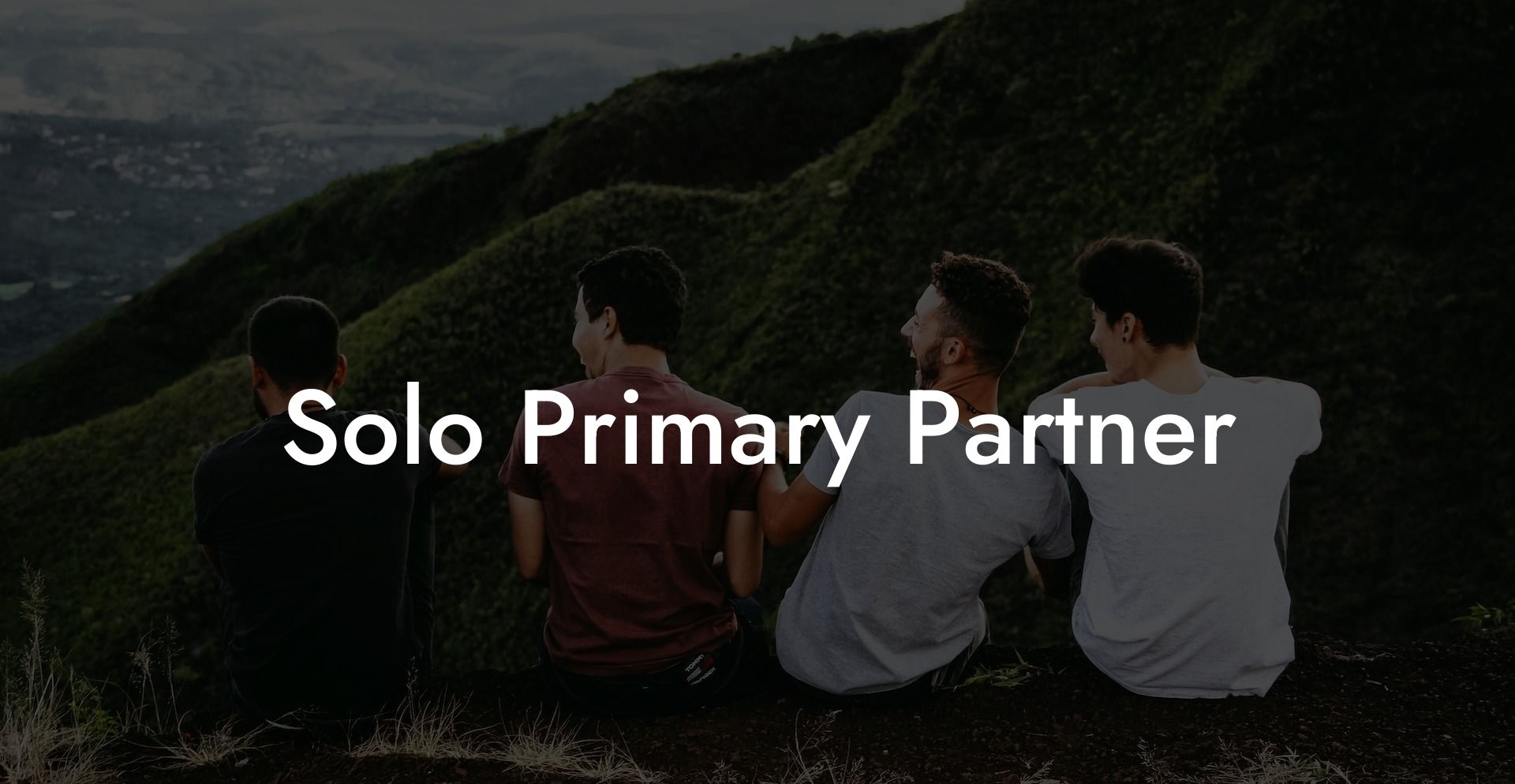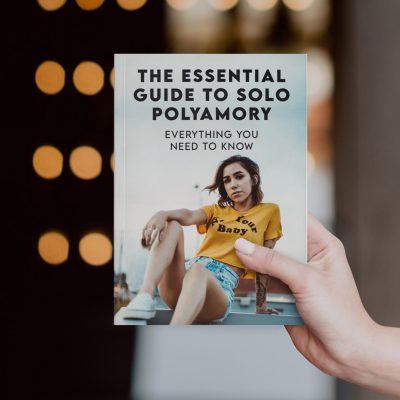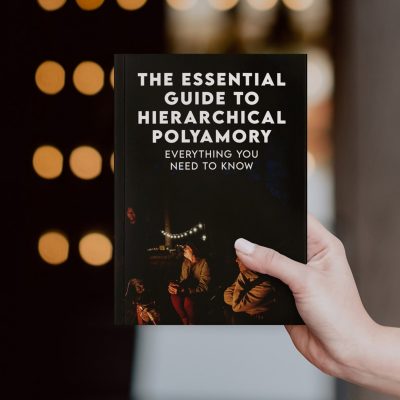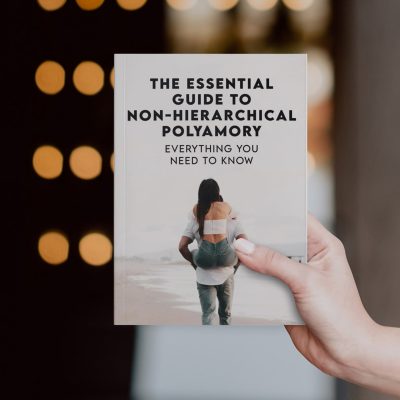Guide to Solo Primary Partner

In many modern relationship models, particularly within polyamorous and alternative communities, a "primary partner" is often viewed as the anchor or core of a relationship network. However, being a solo primary partner means you intentionally preserve a strong sense of self and personal autonomy while being in a committed relationship. This guide will help you understand what it means to be a solo primary partner, discuss the benefits and challenges of maintaining both intimacy and independence, and offer actionable tips for creating a balanced, fulfilling dynamic.
Quick Links to Useful Sections
- Understanding the Solo Primary Partner Concept
- Defining a Solo Primary Partner
- How It Differs from Traditional Primary Couples
- Core Principles for Being a Successful Solo Primary Partner
- Autonomy and Self-Identity
- Open Communication and Transparency
- Establishing Clear Boundaries
- Emotional Intelligence and Self-Awareness
- Benefits of Being a Solo Primary Partner
- Enhanced Personal Growth
- Greater Flexibility in Relationship Dynamics
- Improved Emotional Well-Being
- Empowered and Resilient Relationships
- Challenges of Being a Solo Primary Partner
- Balancing Independence and Intimacy
- Managing Time and Emotional Energy
- Dealing with External Pressures and Social Stigma
- Practical Strategies and Tips
- Develop a Personalized Relationship Agreement
- Leverage Technology for Organization
- Invest in Self-Care and Personal Development
- Maintain Open, Regular Communication
- Build a Supportive Network
- FAQ: Your Solo Primary Partner Questions Answered
Understanding the Solo Primary Partner Concept
Defining a Solo Primary Partner
A solo primary partner is someone who is in a primary, committed relationship yet chooses to retain a high degree of independence and personal space. Unlike couples who fully merge every aspect of their lives, a solo primary partner prioritizes maintaining individual identity, interests, and autonomy even while being the central focus in a relationship network. This approach allows for a balance between deep emotional connection and personal growth.
In practical terms, being a solo primary partner might mean keeping separate finances, maintaining individual hobbies and social circles, and having clearly defined boundaries that preserve personal time while still nurturing the primary relationship.
How It Differs from Traditional Primary Couples
Traditional primary couples often strive for complete integration, merging lives, finances, and daily routines. In contrast, the solo primary partner values both commitment and personal independence. This model encourages a balance where the relationship serves as a central support system without diminishing each partner’s individuality.
The solo primary approach is particularly appealing in polyamorous or ethically non-monogamous contexts, where individuals may have multiple relationships but still designate one as their primary connection. This designation is flexible and dynamic, allowing room for personal growth and change.
Core Principles for Being a Successful Solo Primary Partner
Autonomy and Self-Identity
A fundamental principle of being a solo primary partner is maintaining autonomy. Embracing your individuality means investing time and energy in your personal interests, career, and hobbies. Retaining a strong sense of self not only enriches your personal life but also contributes positively to the primary relationship.
Cultivate your passions and ensure that your identity is not solely defined by your relationship. This autonomy creates a healthy balance and encourages both partners to grow independently.
Open Communication and Transparency
Clear and honest communication is essential in any relationship, especially when balancing commitment with independence. Regular check-ins, discussions about boundaries, and transparent dialogue about your needs help build trust and prevent misunderstandings.
Consider scheduling regular one-on-one conversations and using digital tools (such as shared calendars or messaging apps) to keep both partners informed of their schedules, personal goals, and relationship needs.
Establishing Clear Boundaries
Defining boundaries is crucial for maintaining your individuality within a primary relationship. These boundaries might include designated personal time, limits on financial merging, or clear guidelines about space and privacy.
Create a written or digital agreement that outlines your expectations and responsibilities. This can be revisited periodically to ensure it continues to reflect your evolving needs and values.
Emotional Intelligence and Self-Awareness
Developing emotional intelligence is key to managing the complexities of a solo primary partnership. This involves understanding your own emotions, recognizing your triggers, and effectively communicating your feelings.
Engage in practices such as journaling, mindfulness meditation, or even therapy to enhance self-awareness. When you know your emotional landscape, you can navigate challenges like jealousy or insecurity more effectively.

Love is infinite, but your calendar is brutally finite. The fantasy is deep connection; the reality is often just exhausted "calendar tetris." Promising time you don't actually have isn't romantic, it’s a recipe for burnout and broken trust. That sinking feeling when you have to cancel again? That’s the sound of overextension destroying your relationships.
This calculator forces you to confront the math of your life. Do you actually have space for another heart, or are you just setting everyone up for disappointment?

The fantasy is total autonomy and connection. The reality? It can feel like drowning in scheduling chaos and misunderstood expectations. That anxiety you feel isn’t just stress; it’s the wobble of living without a default "anchor." Without a solid architecture, Solo Polyamory stops being a life design and starts being a recipe for burnout and confusion.
The Essential Guide replaces the drift with a concrete anchor. We provide the "Solo Ethic," boundary scripts, and burnout protocols needed to protect your peace. Don't just date around—build a life that actually works for you.

Hierarchy sounds like a corporate org chart until someone gets their feelings hurt. That stomach-turning fear that you are just a "secondary" who can be fired at any time is real. If your relationship feels like a secret ranking system, you are doing it wrong.
Ambiguity is where resentment grows. The Essential Guide replaces the "who matters more" panic with a concrete charter. We provide the scripts and equity guardrails needed to protect every heart in the polycule. Stop guessing and start building.

The ideal is pure equality. The reality? It often slides into hidden rankings where someone gets hurt. That sinking feeling that you are secretly a "secondary" despite the label? That is your intuition detecting couple privilege. Ambiguity is where resentment thrives.
The Essential Guide replaces vague promises with concrete governance. We provide the charters, equity tools, and jealousy protocols needed to ensure "non-hierarchical" isn't just a fantasy. Stop guessing who matters most. Build a network that is actually fair.

The fantasy is total autonomy and connection. The reality? It can feel like drowning in scheduling chaos and misunderstood expectations. That anxiety you feel isn’t just stress; it’s the wobble of living without a default "anchor." Without a solid architecture, Solo Polyamory stops being a life design and starts being a recipe for burnout and confusion.
The Essential Guide replaces the drift with a concrete anchor. We provide the "Solo Ethic," boundary scripts, and burnout protocols needed to protect your peace. Don't just date around—build a life that actually works for you.

Hierarchy sounds like a corporate org chart until someone gets their feelings hurt. That stomach-turning fear that you are just a "secondary" who can be fired at any time is real. If your relationship feels like a secret ranking system, you are doing it wrong.
Ambiguity is where resentment grows. The Essential Guide replaces the "who matters more" panic with a concrete charter. We provide the scripts and equity guardrails needed to protect every heart in the polycule. Stop guessing and start building.
Benefits of Being a Solo Primary Partner
Enhanced Personal Growth
Maintaining your independence while being in a committed relationship encourages ongoing personal development. The process of balancing intimacy with autonomy fosters self-reflection and allows you to explore your desires, values, and personal goals without feeling confined.
This dynamic not only strengthens your individual identity but also enriches your primary relationship, as both partners bring more to the table from their personal growth journeys.
Greater Flexibility in Relationship Dynamics
Being a solo primary partner offers flexibility in how you manage your time and emotional energy. You can allocate time for your personal pursuits while ensuring that the primary relationship remains strong. This flexibility can lead to a more resilient and adaptive relationship dynamic.
It also enables you to engage in additional relationships or social networks without feeling obligated to sacrifice your independence.
Improved Emotional Well-Being
By maintaining a strong sense of self, you are less likely to experience emotional dependency or burnout. The balance between personal fulfillment and relationship commitment can lead to enhanced self-esteem, reduced stress, and overall improved mental health.
This emotional balance supports a healthy primary relationship where both partners feel secure and valued.
Empowered and Resilient Relationships
The solo primary model promotes an empowered approach to relationships. When both partners value their autonomy, it can lead to a more equitable distribution of responsibilities and a stronger, more resilient bond. This model allows for a dynamic where personal achievements and relationship growth reinforce one another.
Challenges of Being a Solo Primary Partner
Balancing Independence and Intimacy
One of the primary challenges is finding the right balance between maintaining your independence and nurturing the intimacy of the primary relationship. It can be difficult to ensure that both aspects of your life receive adequate attention.
To overcome this, set clear priorities and schedule dedicated time for both personal activities and shared experiences.
Managing Time and Emotional Energy
Coordinating your personal goals with the needs of your primary relationship requires effective time management and emotional regulation. The risk of overcommitting or neglecting one area in favor of the other is a common challenge.
Utilize digital tools and regular planning sessions to manage your schedule, and don’t hesitate to adjust your routines as necessary.
Dealing with External Pressures and Social Stigma
Society often places high value on traditional relationship models, which can lead to external pressures or judgment when you choose an alternative approach. As a solo primary partner, you may face questions or criticism about your choice to maintain independence within a committed relationship.
Building a supportive network of like-minded individuals and engaging in self-education can help you navigate these challenges.
Practical Strategies and Tips
Develop a Personalized Relationship Agreement
Craft a relationship agreement that reflects your unique needs and expectations. This agreement should outline:
- Personal Boundaries: Define clear guidelines for personal space, financial independence, and emotional time.
- Communication Protocols: Set regular check-in times and decide on the preferred methods of communication.
- Shared Responsibilities: Clarify how household duties, decision-making, and long-term planning will be managed.
- Flexibility Clauses: Include provisions for periodic review and updates to the agreement as your relationship evolves.
Leverage Technology for Organization
Use digital tools such as shared calendars, scheduling apps, and task management software to coordinate time and responsibilities. This will help you balance personal time with relationship commitments.
- Set up a shared digital calendar for important dates and appointments.
- Use scheduling apps to create reminders for both individual and couple time.
- Maintain a task list to manage household or joint responsibilities efficiently.
Invest in Self-Care and Personal Development
Prioritize self-care routines that reinforce your independence and boost your emotional well-being. Engage in activities that allow you to recharge and grow personally, such as exercise, creative hobbies, or mindfulness practices.
- Create a daily routine that includes time for relaxation and personal interests.
- Explore new hobbies or skills that enrich your life.
- Consider individual therapy or coaching to strengthen your self-awareness and emotional resilience.
Maintain Open, Regular Communication
Effective communication is the key to balancing intimacy and independence. Schedule regular check-ins with your partner to discuss your feelings, adjust boundaries, and celebrate successes. Use active listening techniques to ensure both partners feel heard and validated.
- Hold weekly or monthly meetings dedicated to relationship health.
- Use “I” statements to express your needs and emotions without blame.
- Encourage honest feedback and be willing to adjust as necessary.
Build a Supportive Network
Connect with others who share your lifestyle values by joining online forums, local meet-ups, or support groups focused on alternative relationship models. These communities provide practical advice, emotional support, and a safe space to share experiences.
- Engage with communities on platforms like Reddit’s r/polyamory or specialized Facebook groups.
- Attend workshops and webinars on ethical non-monogamy to expand your knowledge and network.
- Consider peer counseling or group discussions to share challenges and solutions.
FAQ: Your Solo Primary Partner Questions Answered
1. What is a solo primary partner?
A solo primary partner is someone who maintains a central, committed relationship while prioritizing their individual independence and personal identity. This model allows you to have a strong, primary connection without sacrificing your autonomy.
2. How does being a solo primary partner differ from a traditional primary couple?
Unlike traditional primary couples, where both partners merge many aspects of their lives, a solo primary partner actively maintains personal boundaries and independence, ensuring that each individual retains their unique identity and personal interests.
3. What are the benefits of being a solo primary partner?
Benefits include enhanced personal growth, increased autonomy, a balanced approach to intimacy and independence, improved emotional well-being, and the ability to pursue individual goals while maintaining a committed relationship.
4. What challenges might I face as a solo primary partner?
Common challenges include balancing personal time with relationship commitments, managing feelings of isolation or jealousy, and navigating societal pressures or misconceptions about non-traditional relationship models.
5. How can I maintain effective communication in a solo primary partnership?
Regular check-ins, active listening, and using digital tools like shared calendars and messaging apps are essential for maintaining open and honest communication. Establish clear protocols for discussing feelings, boundaries, and adjustments as your relationship evolves.
6. What practical tools can help manage time and responsibilities?
Utilizing shared digital calendars, scheduling apps, and task management tools can help you balance your personal and relationship commitments effectively, ensuring that both your independence and your partnership are nurtured.
7. Where can I find additional support and resources?
Additional resources include books such as "The Ethical Slut" and "More Than Two", podcasts like "Multiamory" and "Polyamory Weekly," online communities like r/polyamory, and local workshops on ethical non-monogamy.
Resources and Community Support: Your Next Steps
- "The Ethical Slut" by Dossie Easton & Janet Hardy – A foundational book on ethical non-monogamy that offers valuable insights into maintaining individuality within committed relationships.
- "More Than Two" by Franklin Veaux & Eve Rickert – An in-depth guide on managing multiple relationships with practical advice that is applicable to solo primary partnerships.
- Podcasts: Listen to "Multiamory" and "Polyamory Weekly" for engaging discussions and personal stories about balancing commitment with independence.
- Online Communities: Join forums and social media groups such as r/polyamory to connect with like-minded individuals and share experiences.
- Workshops and Webinars: Attend events focused on ethical non-monogamy and relationship psychology to gain practical strategies and expand your network.
By exploring these resources and applying the practical strategies outlined in this guide, you can thrive as a solo primary partner, maintaining a healthy balance between personal independence and a fulfilling, committed relationship. Embrace continuous learning, open communication, and dedicated self-care as you navigate your unique relationship dynamic.

Love is infinite, but your calendar is brutally finite. The fantasy is deep connection; the reality is often just exhausted "calendar tetris." Promising time you don't actually have isn't romantic, it’s a recipe for burnout and broken trust. That sinking feeling when you have to cancel again? That’s the sound of overextension destroying your relationships.
This calculator forces you to confront the math of your life. Do you actually have space for another heart, or are you just setting everyone up for disappointment?

The fantasy is total autonomy and connection. The reality? It can feel like drowning in scheduling chaos and misunderstood expectations. That anxiety you feel isn’t just stress; it’s the wobble of living without a default "anchor." Without a solid architecture, Solo Polyamory stops being a life design and starts being a recipe for burnout and confusion.
The Essential Guide replaces the drift with a concrete anchor. We provide the "Solo Ethic," boundary scripts, and burnout protocols needed to protect your peace. Don't just date around—build a life that actually works for you.

Hierarchy sounds like a corporate org chart until someone gets their feelings hurt. That stomach-turning fear that you are just a "secondary" who can be fired at any time is real. If your relationship feels like a secret ranking system, you are doing it wrong.
Ambiguity is where resentment grows. The Essential Guide replaces the "who matters more" panic with a concrete charter. We provide the scripts and equity guardrails needed to protect every heart in the polycule. Stop guessing and start building.

The ideal is pure equality. The reality? It often slides into hidden rankings where someone gets hurt. That sinking feeling that you are secretly a "secondary" despite the label? That is your intuition detecting couple privilege. Ambiguity is where resentment thrives.
The Essential Guide replaces vague promises with concrete governance. We provide the charters, equity tools, and jealousy protocols needed to ensure "non-hierarchical" isn't just a fantasy. Stop guessing who matters most. Build a network that is actually fair.

The fantasy is total autonomy and connection. The reality? It can feel like drowning in scheduling chaos and misunderstood expectations. That anxiety you feel isn’t just stress; it’s the wobble of living without a default "anchor." Without a solid architecture, Solo Polyamory stops being a life design and starts being a recipe for burnout and confusion.
The Essential Guide replaces the drift with a concrete anchor. We provide the "Solo Ethic," boundary scripts, and burnout protocols needed to protect your peace. Don't just date around—build a life that actually works for you.

Hierarchy sounds like a corporate org chart until someone gets their feelings hurt. That stomach-turning fear that you are just a "secondary" who can be fired at any time is real. If your relationship feels like a secret ranking system, you are doing it wrong.
Ambiguity is where resentment grows. The Essential Guide replaces the "who matters more" panic with a concrete charter. We provide the scripts and equity guardrails needed to protect every heart in the polycule. Stop guessing and start building.
Accountability When Harm Occurs
Aging And Long Term Planning
Alternatives To Veto Policies
Attachment Styles And Hierarchy
Avoiding Disposable Partner Dynamics
Avoiding Entitlement In Primary Relationships
Avoiding Objectification And Ranking Language
Blended Families And Co Parenting Dynamics
Boundaries Versus Rules In Hierarchical Contexts
Caregiving And Illness Decisions
Choosing Hierarchy Intentionally
Common Challenges Faced By Secondary Partners
Common Mistakes Primary Partners Make
Common Mistakes Secondary Partners Make
Common Myths About Hierarchical Polyamory
Communicating Limits Without Devaluing Others
Community Perception Of Hierarchical Polyamory
Compersion When Time And Resources Are Unequal
Consent And Transparency In Hierarchy
Consent Under Unequal Power Dynamics
Cultural And Socioeconomic Influences On Hierarchy
De Escalation Without Punishment
Deciding Whether Hierarchical Polyamory Is Right For You
Decision Making Power In Primary Relationships
Descriptive Versus Prescriptive Hierarchy
Emotional Labor Distribution Across Partners
Emotional Regulation Skills For Hierarchical Dynamics
Emotional Safety For Non Primary Partners
Ending Relationships Ethically Within Hierarchy
Ethical Foundations Of Hierarchical Structures
Ethical Storytelling About Hierarchical Relationships
Ethical Use Of Veto Power
Fear Of Replacement Or Demotion
Financial Transparency With Multiple Partners
Handling Breakups Within A Hierarchical System
Hierarchy Versus Relationship Anarchy
Holidays Vacations And Special Occasions
How Hierarchical Polyamory Differs From Non Hierarchical Polyamory
How Hierarchical Polyamory Evolves Over Time
How Privilege Shows Up In Daily Decisions
How To Disclose Hierarchy Early In Dating
Inclusion Versus Exclusion Practices
Integrating Hierarchy With Personal Values
Integrating New Partners Ethically
Intersectionality And Power In Hierarchy
Jealousy In Hierarchical Polyamory
Legal Risks And Protections
Lessons Hierarchical Polyamory Teaches About Love
Letting Go Of Hierarchy When It No Longer Fits
Living Together Versus Living Apart
Long Distance Relationships Within Hierarchy
Managing Boundary Violations
Managing Comparison Between Partners
Marriage And Legal Privilege In Hierarchical Polyamory
Measuring Fulfillment Beyond Priority Status
Navigating Attachment As A Secondary Partner
Navigating Conflicts Between Partners At Different Levels
Navigating Judgment From Non Hierarchical Communities
Ongoing Check Ins Across Relationship Levels
Opening Or Closing The Hierarchy
Parenting And Family Planning Within Hierarchy
Power Imbalances Inherent In Hierarchy
Pregnancy And Parenting Transitions
Primary Secondary And Tertiary Relationship Definitions
Privacy And Information Flow
Re Negotiating Hierarchy After Major Life Events
Rebuilding Trust After Structural Changes
Renegotiating Primary Agreements Over Time
Repair Conversations After Hierarchical Tension
Repairing Harm Caused By Hierarchical Decisions
Resentment And Unspoken Grief
Responsibilities And Expectations Of Primary Partners
Rules That Protect Versus Rules That Control
Scheduling Fairness Versus Equality
Self Worth Outside Relationship Rank
Setting Clear Expectations With New Partners
Shared Finances And Resource Prioritization
Signs Hierarchy Is Functioning Well
Supporting Mental Health Across The Network
Supporting Secondary Partners Through Transitions
The Origins And History Of Hierarchical Polyamory
The Role Of Nesting Partners
Therapy And Coaching For Hierarchical Polyamory
Time Allocation And Scheduling Priorities
Transparency Without Oversharing
Treating All Partners As Whole People
Understanding Couple Privilege
Warning Signs Of Unhealthy Hierarchy
What Hierarchical Polyamory Is And What It Is Not
What It Means To Be A Primary Partner
What It Means To Be A Secondary Partner
What People Wish They Knew Earlier
What Success Looks Like In Hierarchical Polyamory
When Hierarchy Activates Past Trauma
When Hierarchy Becomes Coercive
When Hierarchy Emerges Without Intention
When Primary Relationships Change
When Professional Support Is Needed
When Secondary Relationships Deepen
Why Hierarchy Exists In Some Polyamorous Relationships
Lost & confused by all of the terms, types and seemingly made up 3 letter acronyms?? We've got you. Check out our Ethnical Non-Monogamy Dictionary >>
Useful Interruption: Not sure which relationship vibe fits you best? Take the Ultimate Relationship Test, it will give you details into your natural relationship style. Then, dive into our binge-worthy guides, from the tried-and-true to the “wait, that’s a thing?", and find the perfect relationship type for your life.
Now back to the main article but yeah take the Ultimate Relationship Test
